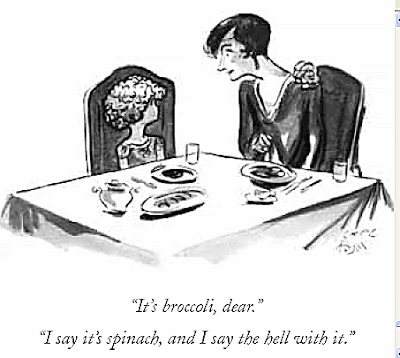You can read about it here.
You may wonder how the People of Massachusetts are "punishing" this fellow by refusing him the surgery. Or you may wonder how this "punishment" could possibly be "cruel" or "unusual" You would be joined in your wonderment, I think, by the framers of the Constitution.
The framers were quite concerned about actual torture, like drawing and quartering, when they passed the Eighth Amendment. They were, almost assuredly, not committing their "lives, their fortunes, and their sacred honor" to protect a felon's right to cut off his, ahem, and install an artificial, ahem, in its place.
I prefer to use "ahem" to describe the anatomical realities of this surgery. Suffice it to say that, among other things, it involves a surgical severance of the male member, and a surgical installation of a make believe female member.
As late as 1960 we universally would have thought that cutting off a man's, ahem, and then installing an artificial, ahem, was cruel and unusual punishment. Now we have advanced as a society to the point where we understand that NOT paying $20,000 to have a surgeon cut off a man's, ahem, is (a) cruel (b) unusual and (c) punishment. We know this because if we do not pay to have it done the prisoner will do it himself, or kill himself.
We are not entitled to morally compel others to satisfy our desires or needs by threatening to kill ourselves. We cannot morally force someone else to violate his conscience by holding our own lives hostage. This seems a healthy principle, but one which has escaped the judge.
The prisoner had the freedom to pay for this particular surgery, but he forfeited his freedom by murdering his wife. There are many consequences to committing murder, most of which center on giving up freedoms you once had.
The fact that this prisoner is sick enough to maim or kill himself to enforce his own will does not require that we suddenly surrender our own privilege, as free moral agents, not to pay for his choice. To say otherwise is to make the prisoner our jailer. If he is determined to kill himself, he has that choice. But I do not bear responsibility for his exercise of that choice, nor am I required by law or morals to accede to, or participate in, his immorality.
For instance, as a citizen I am not morally responsible for a prisoner who chooses to hang himself rather than face his life in prison. I do not owe it to him to set him free, because otherwise he will try to commit suicide.
Framing this as a "medical" decision does not evade the moral question. Medical science can give us diagnoses, and treatments, but it cannot, in the end, decide moral questions for us. You can find qualified psychiatrists who would opine that almost any treatment would be "medically necessary," if the patient were sick enough to kill or harm himself for the want of the "treatment."
In this case, "medically necessary" means the patient will harm himself if you don't do this. Yet this is morally quite different from treating a life-threatening microbe that has invaded the prisoner's body against his will. Medically, the two problems may be interchangeable: they both threaten life and both can be addressed by a medical procedure. Morally, the two situations could not be more distinct.
The fact that a person wants a treatment, or that the person will harm himself if he does not receive the treatment he wants, cannot be the final word on whether I have an obligation to pay for the treatment. The result of accepting "medical necessity" as an answer to moral objections is madness, not principle.
We have some experience of the outcome of this madness when it comes to abortion, and in particular, the Obamacare mandates that seek to force Catholics to pay for other people's abortions.
I feel like the little kid in the famous New Yorker cartoon.





Well said!
ReplyDeleteDon't forget your vocation as an optimist. The thing I take from this is how grateful I am to be disagreeing with that decision. Sometimes one can feel in the minority and it's confusing. Then you see what ludicrous things others are thinking and you think 'Thank you God for the Truth, and sanity.' Sheed's book seemed to have a whacky title 'Theology and Sanity' when I first read it 20 years ago, but now it seems wholly accurate.
ReplyDeleteThank you for your calm and grateful sanity, Adrian!
ReplyDelete